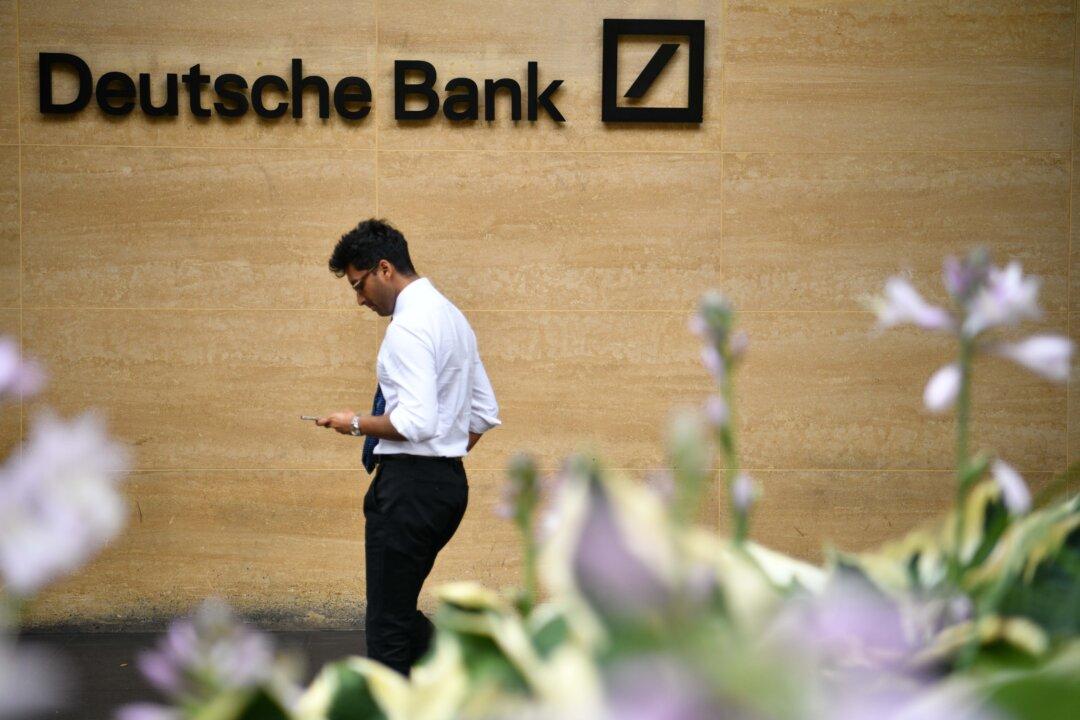Deutsche Bank shares tumbled as much as 16 percent on March 24 after the cost of insuring the financial institution’s debt against default risks increased to the highest levels in about four years.
The Frankfurt-listed stock later trimmed its losses to close 8.5 percent lower.





